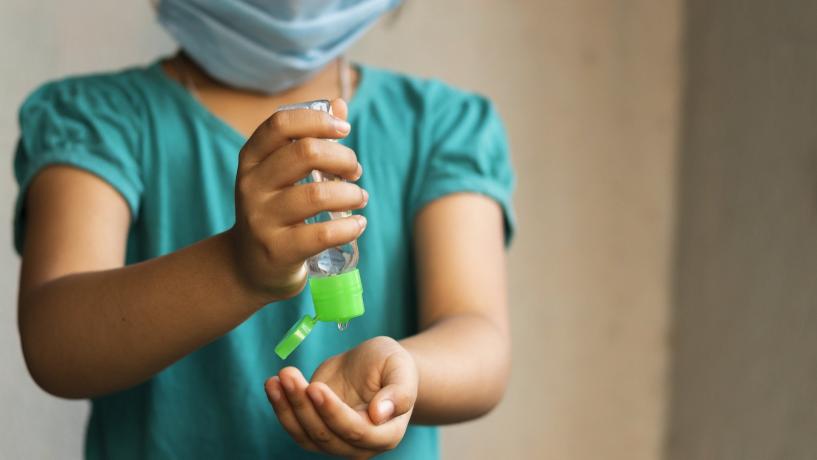
This year has seen a significant increase in people caring about personal hygiene, particularly hand hygiene. This is especially true for those who work in food businesses, as it is a requirement for food safety and for customer safety. The increase in hand hygiene awareness has been paired with an increase in the use of hand sanitiser within food businesses.
In some industries and if used correctly, research has shown that alcohol-based hand sanitisers can be as effective as hand washing with soap and water. However, there are several compelling reasons why hand sanitisers should be used only when soap and water is not readily available and not be used as a substitute for proper hand washing.
Concerns about hand sanitiser
1. Hand sanitisers work best on clean hands
The effectiveness of hand sanitisers depends on how much visible dirt or grease is present on the hands. Alcohol-based hand sanitiser has been proven to be effective in clinical settings like hospitals and care centres because health care workers’ hands are generally not visibly soiled or greasy. Unfortunately, this is not always the case for Food Handlers within a food business setting. Hand sanitisers may not be effective on soiled or greasy hands and this is why hand washing with soap and water is recommended when hands are more heavily soiled, such as with food waste or cooking oil.
2. Hand sanitisers cannot remove chemicals
Hand sanitisers are unlikely to remove or inactivate harmful chemicals, so it is important that Food Handlers wash their hands carefully after using many common kitchen cleaning chemicals.
3. Hand sanitisers can cause contamination
In order for hand sanitisers to be used properly they must be allowed time to absorb into the skin. If they are not properly absorbed into the skin, a Food Handler could cause the chemical contamination of food and potentially make a customer severely ill. This means that Food Handlers must wait until the hand sanitiser has been completely absorbed before working with food. This is not practical in a busy food business and difficult to monitor. This is why hand sanitiser should never be a substitute for proper hand washing.
Soap and water is the most effective
While alcohol-based hand sanitisers effectively kill most bacteria and viruses, hand washing with soap and water is proven to be more effective against certain pathogens, such as C. difficile, Norovirus and COVID-19.
Norovirus is most commonly transmitted via food contaminated by Food Handlers who are (knowingly or unknowingly) infected with the virus. Because hand sanitiser is less effective against Norovirus, proper hand washing with soap and water is critical to preventing the spread of food-borne infections.
The same goes for preventing the spread of COVID-19. While hand sanitisers can be effective at preventing the spread of COVID-19, they are not as effective as using the proper hand washing technique with warm, running water and soap. All staff in food businesses should wash their hands frequently using the proper hand washing technique in order to prevent the spread of COVID-19.
When to use hand sanitiser
It is recommended that Food Handlers wash their hands with soap and water whenever possible to remove all types of food-borne pathogens. However, if there is not immediate access to water, an alcohol-based hand sanitiser that contains at least 60% alcohol can be used.
It is important to apply a sufficient amount of hand sanitiser to cover both hands; rub the liquid into the palms, backs of hands, between fingers and under nails and allow it to dry completely (approximately 20 seconds).





